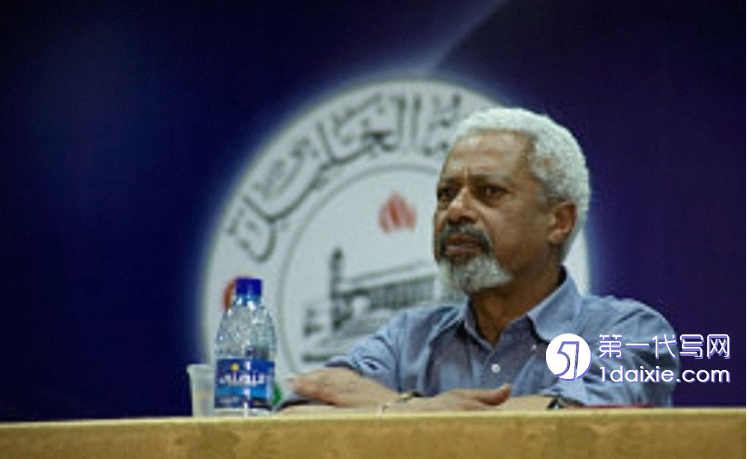本文是一篇英语毕业论文,本论文通过探讨多蒂在三个空间中的体验,揭示了流散群体在多元文化社会中所面临的身份困境。后殖民时代,多蒂作为具有多元文化背景的少数族裔,追求单一固定的身份是注定失败的。古尔纳为其提供的出路是打破文化身份的二元对立,接受身份的杂糅性。
2. Literature Review
2.1 Overseas studies
The number of research monographs on Gurnah is small. Marco Neil Ruberto’s (2009) doctoral dissertation Itinerant Narratives: Travel, Identity and Literary Form in Abdulrazak Gurnah’s Fiction explored the relationship between travel, identity and literary form in Gurnah’s fiction. Sharae Deckard (2009) published Paradise Discourse, Imperialism, and Globalization: Exploiting Eden. The book included a chapter on the strategies of resistance to Western “paradise” discourse and imperialism through the shaping of the Swahili world in Gurnah’s fictions. Mohineet Kaur Boparai (2021) published The Fiction of Abdulrazak Gurnah: Journeys through Subalternity and Agency, which analyzed the issues of plebeianism, colonization and class in Gurnah’s fictions. Sean James Bosman (2021) published Rejection of Victimhood in Literature: By Abdulrazak Gurnah, Viet Thanh Nguyen, and Luis Alberto Urrea, which examined the ways in which works of fiction by Gurnah and others advocated for fairness and justice and profoundly affected the sense of self-identity and destiny of oppressed, colonized people.
Compared with monographs, research papers on Gurnah are quite productive and can be summarized in the following categories by research topic. The theme of refugees is often presented in Gurnah’s fiction. Roger Bromley (1988) argues that Memory of Departure presents the chaotic, fractured nature of postcolonial Tanzania, where ethnic conflict has left individuals without a sense of belonging, portraying a sense of alienation between individuals that in a living crisis and their homeland. Following Derrida’s investigation of hospitable relationships, David Farrier (2008) examines how the reception of the asylum seeker is made conditional, through a reading of the relationship between an asylum seeker, Saleh Omar, and his various hosts in Abdulrazak Gurnah’s novel By the Sea. The host and guest are caught in a resistance to “conditionality”, and intervening in this resistance “represent a postcolonial inversion of the neo-colonial relationship of host and guest”.

2.2 Domestic studies
It was only after Gurnah won the Nobel Prize for Literature in 2021 that Chinese scholars began to pay attention to him and his works. At the same time, Chinese translations of Gurnah’s fictions began to be published one after another. Before 2021, Zhang Feng had published an article in Foreign Literature Dynamics in 2012. The article introduced Gurnah’s life and the contents of his eight fictions in detail, and made a brief evaluation. He also pointed out that Gurnah’s fictions replace the traditional linear narrative with fragmented stories, and this rupture appropriately expresses the living conditions of characters who are in a state of dislocation and dispersion. This is the earliest article about Gurnah, and it has been a guide for Chinese readers to understand Gurnah. Throughout the domestic studies on Gurnah, the research perspectives are similar to those of overseas, which also mainly focus on narrative, postcolonial, trauma, identity, refugee, space, etc. Therefore, I don’t give a tautology here.
Domestic study on Dottie mainly focuses on community writing, intertextuality and identity crisis. By analyzing the misplaced ethical identities and ethical dilemmas of Dottie’s three siblings in a multicultural context, Huang Hui (2022) reveals the longing of the diasporic group for the status of the subject and the common ethical identity needs of minority groups, and also explores the heroine’s journey of making ethical choices in the light of historical memory and social reality as well as imagines and pursues the ethical community in a multicultural context. From the perspective of the intertextuality between Dottie and Dickens’ David Copperfield, Zhu Zhenwu and Su Wenya (2022) argue that Dottie continues the classic British initiation stories tradition and rewrites it to construct an initiation story with African characteristics.
3. Theoretical Framework
3.1 Lefebvre’s spatial theory
Time and space are the basic category of human society, but also the basis point of human thinking. However, the status of these two concepts and the degree of attention in the history of western thought vary greatly. Most thinkers think more about the question of time and more deeply, while ignoring the importance of space. The reorganization and reconsideration of space problems only began to be emphasized in the late 20th century. Henri Lefebvre (1901-1991) was one of the outstanding figures in space critical theory. Based on Marxist theory, he greatly emphasized the sociological significance of space. In particular, his representative book The Production of Space (1991) changed the direction of social critical theory. In this book, he advocated examining the development and state of society with an unprecedented spatial dimension, resulting in the “spatial shift”, which was promoted in the academic circle and became a new trend in the field of cultural research.
Lefebvre believes that people have some limitations in understanding space. They were used to understanding space as a kind of abstract space so that the word “space” is given a mathematical geometric meaning. Therefore, he put forward social space in The Production of Space, considering that “(social) space is a (social) product” (Lefebvre, 1991:26), which is a relationship existence constructed by various social activities and human behaviors. Lefebvre also criticized the traditional idea of treating space only as a simple geographical term or container. He proposed that “Where there is space there is being” (Lefebvre, 1991:22), “everything that there is in space, everything that is produced either by nature or by society, either through their co-operation or through their conflicts” (Lefebvre, 1991:101), arguing that space still has some meaning.
3.2 Identity and space
In contemporary cultural research and cultural criticism, “identity” has two meanings: one is that when an individual or group is different from other individuals or groups in gender, class, race, etc., it can be used as “身份”; the other is that when individuals or groups try to pursue and confirm their own cultural identity, it can be used as “认同” (Wang, 2007:283). Therefore, the identity issue is often a key research topic in the field of postcolonial criticism. “One cannot be a self on one’s own” (Taylor, 1989:36), the process of identity formation has two aspects: “first, being is presented in its relationship with the other, presenting its face and position. Second, the position of identity trapped in the tension of need and desire is a divided space.” (Zhao, 2009:104-105). That is to say, when an individual is in an environment, he is familiar with and has the same culture and values as the group of the “other”, he can form a stable identity and gain a clear self-recognition. On the contrary, when the individual is in a strange environment and meets the “other” with different cultural customs, the clear and stable cognition he has formed before is challenged and questioned. Thus, he needs to find his position again in this conflicting environment, and then the identity problem arises. It can be seen that the environment plays an important role in a person’s identity composition. And the environment is made up of different spaces, such as residences, work places, social places, etc. Therefore, identity is always associated with space. Familiar space contributes to establish the individual’s identity, while unfamiliar space overturns the individual’s cognition, thus making the individual fall into the identity crisis.
3. Theoretical Framework ............................ 13
3.1 Lefebvre’s spatial theory ............................. 13
3.2 Identity and space.......................................... 16
4. Identity Searching in Physical Space ....................... 19
4.1 Identity crisis in a broken family ........................... 19
4.1.1 Cardiff: loss of identity .................................. 20
4.1.2 Segovia Street: identity predicament ................... 24
5. Resistance in Social Space ........................ 35
5.1 Oppressed marginalized identity ................... 35
5.1.1 Racial identity ................................... 36
5.1.2 Gender identity .......................... 42
6. Identity Reconstructing in Mental Space
6.1 Spiritual floating: inner struggle
As a descendant of immigrants, Dottie faced the exclusion of heterogeneous cultures in her life, which forced her to struggle to survive in the cultural cracks. Not only that, but in her family and love, she also faced a choice. In the process of the choice, she had experienced an inner struggle.
Dottie did not know her family history and couldn’t identify herself by any geographical location or cultural connotation, but she was still socially classified, as “her ‘alien’ names and dark skin, markers of ‘otherness’, impose on her an identity” (Bungaro, 2005:31). It can be said that Dottie’s given cultural identity was constructed through the color of her skin. Nevertheless, because Dottie was born in England and had no life experience in her “hometown”, she had no affinity with her own people, so she thought she was British. But the feedback she got from the British society was negative, “since identity is a product of both self-identification and socio-cultural categorization, Dottie’s self-image and self-understanding as “British” clashes with dominant representations, constructions and ideologies of “authentic Englishness” (Bungaro, 2005:33). When Dottie argued with a temporary worker about the Commonwealth at the factory, he asked her where she was from, and Dottie’s answer that she was British drew their merciless ridicule. However, although Dottie believed that she should be one of British, she still had some psychological unconfidence about this identity. She always reminded herself that “she belonged here”, but the way white people spoke to her “made her feel silly and inept... grubby and covered with mud and ochre like the savage” (Gurnah, 2021:34), belittling her actual value, so that she even looked down on herself. While on the other hand, Dottie warned herself that she shouldn’t think that way, and couldn’t succumb to the injustice of their trying to exclude her. When she sat down to rest at work because she was tired and was scolded by the supervisor, “You people can’t be trusted to do anything right” (Gurnah, 2021:34), although she reminded herself over and over again that she belonged here, she still felt ashamed.

7. Conclusion
Dottie featured Dottie, a black girl born in England, as its protagonist, told a story of the three siblings struggling to make a living in London as descendants of immigrants. By examining the survival and identity predicament of the black community caused by the serious xenophobia and racial discrimination ideology in post-war Britain, Gurnah depicted Dottie’s journey of pursuing self-identity under the dual squeeze of historical memory and social reality, and expressed his deep concern for the colonial issue and its consequences. This thesis takes Dottie’s identity as the point of penetration, discusses the issues of identity that she faced in different spaces and how she pursued her identity.
In the physical space, the reason for Dottie’s being trapped in an identity crisis was her lack of relationship with her national history as an immigrant, which made her unable to clearly position her identity in England. The family history that her mother hid about Cardiff influenced the establishment of Dottie’s identity, and the discrimination and exclusion from the British society could not establish a stable identity for her. Her identity was squeezed by both her homeland and the foreign country, which made her fall into an identity crisis. In the process of pursuing her identity, Dottie, as the eldest sister, attempted to derive her identity belonging from her younger siblings, but Hudson and Sophie’s rebelliousness made her question her approach. Furthermore, both Sophie’s attempt to find her self-worth through men and Hudson’s racial strategy of blindly pursuing his American father did not work. The strategy Dottie adopted to cope with the crisis was spatial mobility, got rid of depressive life by changing the place she was in. By going to the library and reading, she expanded her knowledge. Reading and imitating of David Copperfield made Dottie realize herself and gave her the courage to change and pursue herself.
reference(omitted)
